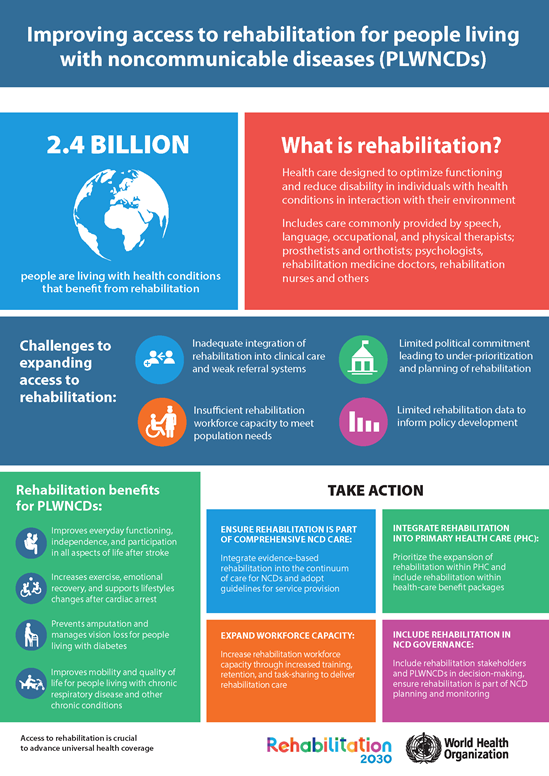5 Easy Facts About Narconon Africa Described
Wiki Article
The Greatest Guide To Narconon Africa
Table of Contents9 Simple Techniques For Narconon AfricaNot known Incorrect Statements About Narconon Africa Top Guidelines Of Narconon AfricaFacts About Narconon Africa RevealedSome Ideas on Narconon Africa You Need To KnowNarconon Africa - An OverviewThe 4-Minute Rule for Narconon Africa
In a collection of papers with Manudeep Bhuller and Katrine V. Lken, we conquer these data obstacles and the nonrandomness of jail time, using brand-new insights right into just how imprisonment influences regression, work, children, and criminal networks - Comprehensive rehab services. Figure 1 Our work studies the results of incarceration in Norway, a setting with 2 key benefitsWe can even more connect this info to other member of the family, consisting of children and brother or sisters. Furthermore, we have information on co-offending that permits us to draw up criminal networks for observed crimes. Second, we can take advantage of the arbitrary project of criminal cases to judges who differ in their propensities to send accuseds to prison.
But some judges send defendants to jail at a high price, while others are extra forgiving. We gauge a court's stringency as the ordinary imprisonment price for all other situations a judge deals with, after regulating for court and year set results, which is the degree of random task. This quasi-random project of judge stringency can be utilized as a tool for incarceration, as it strongly anticipates the court's choice in the current situation, but is uncorrelated with various other case attributes both deliberately and empirically.
The Greatest Guide To Narconon Africa
Features of prisoners, consisting of demographics and criminal activity categories, are broadly similar in Norway and other countries, consisting of the United States, with the exemptions that the United States murder rate is a lot higher, and race plays a larger role there. What stands apart as different, especially compared to the United States, is the jail system.Number 2In Norway, the average time invested in prison is a little over 6 months, which is similar to most other Western European nations. This contrasts with average US jail time of practically three years, which remains in big part the reason the USA is an outlier in its imprisonment rate compared to the remainder of the globe [Number 1]
Everything about Narconon Africa
This provides much more splitting up between small and hard offenders than exists in the United States. There is no congestion in Norwegian jails and much better individual security, with each detainee being designated to their own cell and a higher inmate-to-staff proportion than in the USA (https://www.slideshare.net/narconon0346). Prisons in Norway additionally offer well-funded education, medicine treatment, psychological health and wellness, and job training programsOur study on the impacts of incarceration on the culprit, using the random task of judges as a tool, yields 3 key findings. Imprisonment dissuades even more criminal actions. We discover that imprisonment reduces the probability that an individual will reoffend within 5 years by 27 percent factors and minimizes the corresponding variety of criminal costs per person by 10 charges.
The Narconon Africa Diaries
We locate large declines in reoffending probabilities and advancing charged criminal offenses even after defendants are released from jail. Our second outcome is that predisposition due to option on unobservable specific characteristics, if overlooked, brings about the incorrect conclusion that time spent behind bars is criminogenic. If we just compare criminal defendants imprisoned versus those not imprisoned, we locate favorable associations between imprisonment Learn More Here and succeeding crime.This stands in comparison to our evaluation based upon the random task of courts, which discovers an opposite-signed result. Third, the decrease in criminal activity is driven by people that were not working prior to imprisonment. Among these individuals, jail time raises participation in programs routed at boosting employability and lowering regression, and this eventually increases employment and revenues while dissuading criminal behavior.

Jail time triggers a 34 portion factor boost in participation in job training programs for the formerly nonemployed, and within 5 years their employment price rises by 40 portion factors. At the very same time, the possibility of reoffending within five years is reduced by 46 percent points, and there is a decrease of 22 in the ordinary variety of criminal charges.
Not known Factual Statements About Narconon Africa

A probable description for the difference is that Norway's jail system varies considerably, both in regards to prison-term length and jail conditions, from the US jail system. While comprehending the impacts of imprisonment on the transgressor is an important primary step, capturing spillover results is also important for evaluating criminal justice plan and developing effective prison systems.
Narconon Africa for Beginners

Ordinary least squares estimates disclose that youngsters of incarcerated papas are 1 percent point much more likely to be charged with a criminal offense, about a mean of 13 percent, and reveal no effect on college qualities. Using our court stringency instrument, we find no statistical evidence that a daddy's imprisonment influences a kid's own criminal offense or institution qualities, but we are unable to eliminate modest-sized results.
Get This Report about Narconon Africa
We define criminal teams based upon network links to prior criminal instances. Our analysis returns 3 major findings. First, when a criminal network participant is incarcerated, their peers' probability of being charged with a future criminal activity decreases by 51 portion points over the following four years. Likewise, having an older sibling put behind bars decreases the likelihood his more youthful bro will be billed with a criminal offense by 32 percent factors over the following 4 years.Report this wiki page